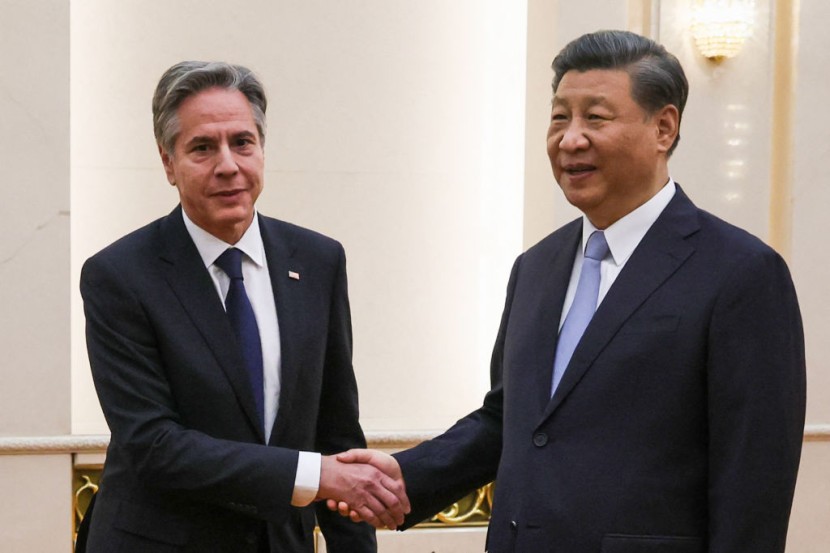
US Secretary of State Antony Blinken reiterated decades of US policy toward Taiwan by stating that the United States does not support a declaration of independence by the island's government, which the People's Republic of China considers a rebel province.
The statement was made by Blinken during a meeting with Chinese leader Xi Jinping, during which the top US diplomat and the Chinese leader attempted to ease months of tension between Washington and Beijing.
Blinken Stresses US Commitment to One-China Policy
The US secretary of state's previously scheduled trip to China was canceled in the wake of the February downing of a Chinese spy balloon, according to US intelligence.
While the US diplomat emphasized that the US does not support Taiwan's "independence," Washington remains a major supplier of arms to the Taiwanese military, and President Joe Biden has stated on multiple occasions that the US would defend Taiwan should China launch an invasion.
Officially, his statement does not represent a change in US policy, as the United States has long maintained strategic ambiguity toward the island, supplying Taipei with arms while avoiding official diplomatic contact.
Blinken met with Chinese President Xi Jinping on Monday and said they agreed to "stabilize" severely deteriorated US-China relations, but America's top diplomat left Beijing with his most important request denied: improved military communications.
Blinken stated, after meeting with President Xi, that China is not prepared to resume military-to-military contacts, which the United States considers essential for avoiding miscalculation and conflict, particularly over Taiwan.
Nonetheless, Yang Tao, China's top diplomat for the Western Hemisphere, stated that Blinken's visit to China "marks a new beginning."
Nonetheless, Blinken and Xi expressed satisfaction with the progress made during the two days of discussions, without identifying specific areas of agreement beyond a mutual decision to return to a broad agenda for cooperation and competition endorsed by Xi and President Joe Biden at a Bali summit last year.
And it remained unclear whether these agreements could resolve their most significant disagreements, many of which have international repercussions. Nonetheless, both men expressed satisfaction with the outcome of the highest-level US visit to China in the past five years.
Republicans Slam Anthony Blinken's Trip to China
Meanwhile, Republicans are using Blinken's trip to Beijing to portray the Biden administration as weak on China, equating the diplomatic reset with appeasement.
In pursuit of "fruitless" diplomacy, the Biden administration is refusing to take the necessary steps to contain China, despite Washington's increasingly antagonistic stance toward China, America's greatest geopolitical rival, according to Republicans.
Prior to Blinken's trip, the chairman of the House Foreign Relations Committee, Rep. Michael McCaul (R-TX), called for new sanctions against Chinese officials and tighter export controls.
The Biden administration has imposed multiple rounds of sanctions on Chinese organizations and individuals, and its decision to restrict China's access to semiconductor technology has Beijing fuming that the United States is attempting to stifle its growth.
Reportedly, the president is "slow walking" certain sanctions against China and has recently toned down his rhetoric. Biden doubted on Saturday that the Chinese Communist Party intended to spy on the United States with its balloon.
Per Washington Examiner, Blinken's trip to China, the first by a secretary of state in five years, mirrored this tone. Even as he pressed China on its human rights record and support for Russia's invasion of Ukraine, he hailed the talks as a "important beginning" that would allow the two nations to close the chapter on the balloon incident.
Republicans criticized the trip as a "apology tour" that made America appear weak on the international stage. Rep. Elise Stefanik (R-NY), the fourth-ranking Republican in the House, stated on Friday that Xi's visit served to "legitimize" his "subversion of our sovereignty," citing China's reported construction of a spy station in Cuba and the sale of US farmland to China.
Related Article : Blinken Meets Xi Jinping in High-Stakes Visit to Beijing Aiming To Ease Soaring US-China Tensions








